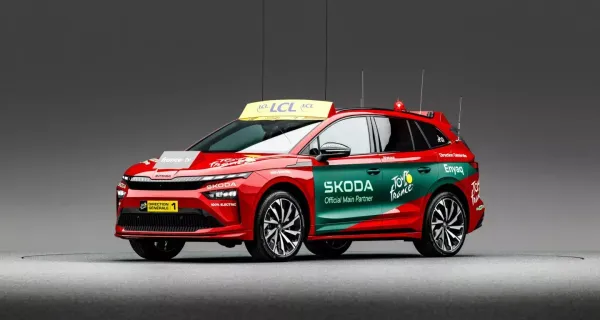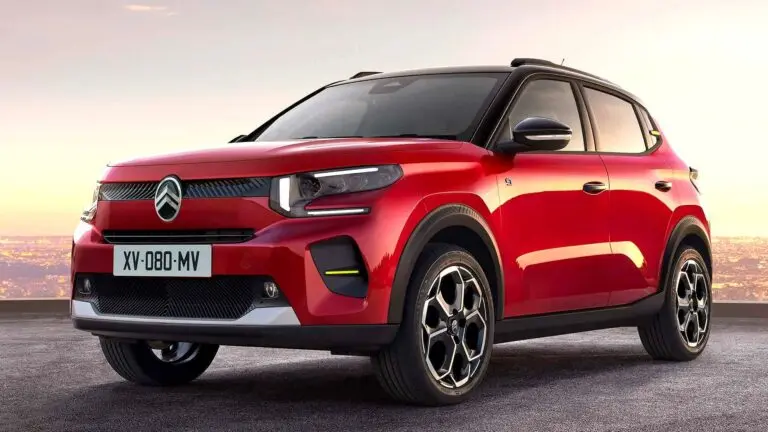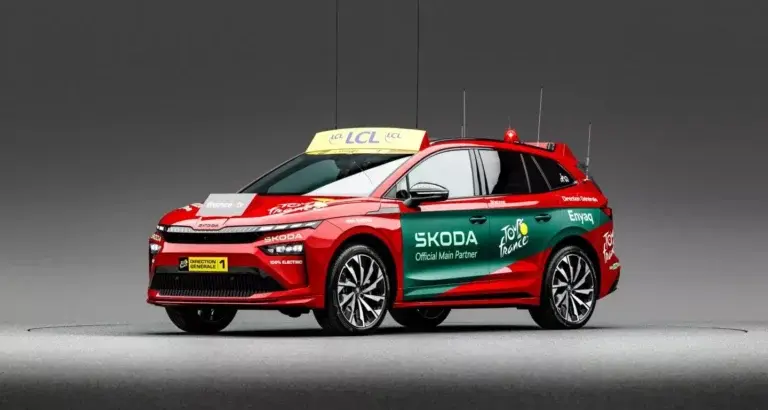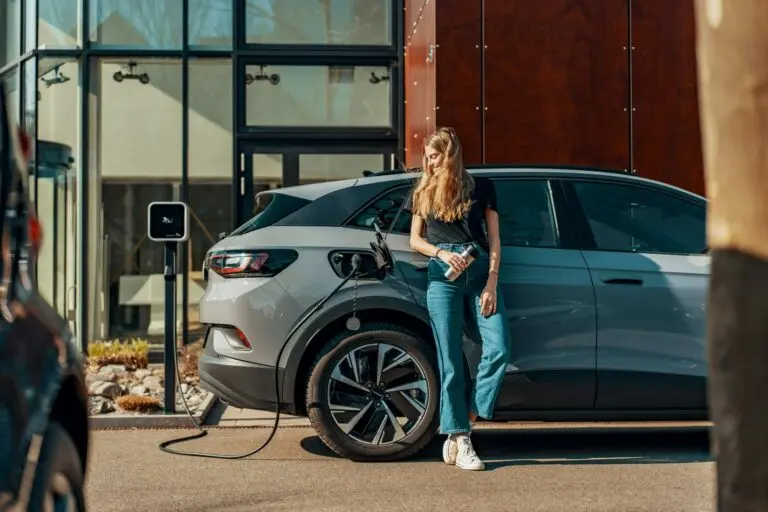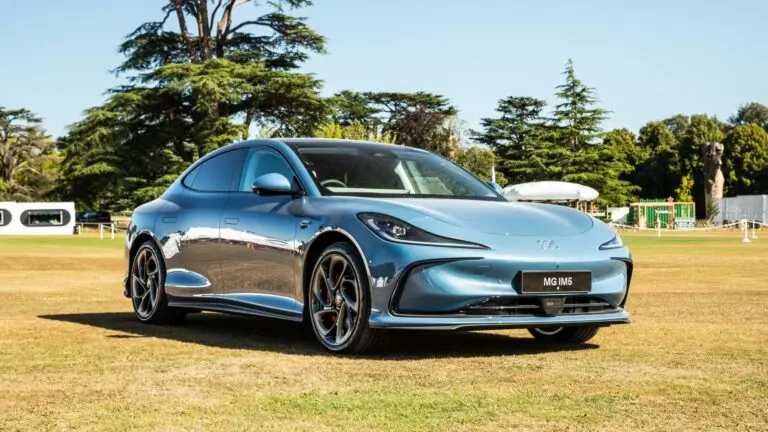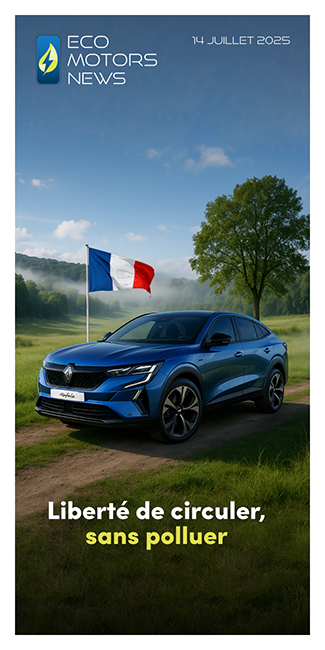The 2025 Tour de France marks a turning point in the history of the Grande Boucle, not only in terms of sporting performance, but also in terms of its commitment to the environment. This year, the support vehicles, essential to the smooth running of the race, are adopting electric power on a massive scale, reducing their carbon footprint and noise pollution.
Škoda: a committed partner
For more than 20 years, Škoda has been the official supplier of vehicles for the Tour. For this 112th edition, the Czech brand has gone one step further by putting 225 100% electric or rechargeable hybrid vehicles on the road. Among them, the Škoda Enyaq iV and the new Škoda Elroq will take on the roles of lead car and steering car. In addition to their performance, these vehicles offer a silent, emission-free drive, contributing to a more pleasant experience for racers and spectators alike.
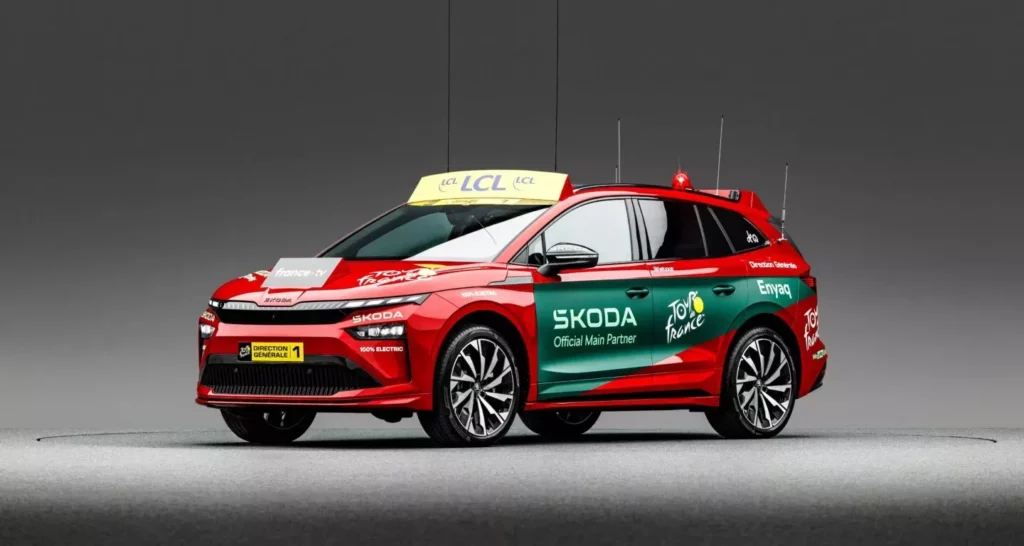
The advertising caravan goes green
Traditionally made up of noisy, polluting vehicles, the Tour de France publicity caravan is also changing. In 2025, several electric vehicles, including models from Volkswagen and Renault, will be integrated into the caravan, reducing the environmental impact of this emblematic event.
Cadillac: a first on the roads of the Tour
For the first time, the American brand Cadillac is taking part in the Tour de France by supplying electric vehicles to the EF Pro Cycling team. The all-electric Lyriq model will accompany the riders throughout the race, underlining Cadillac’s commitment to sustainable mobility and strengthening its presence on the European market.
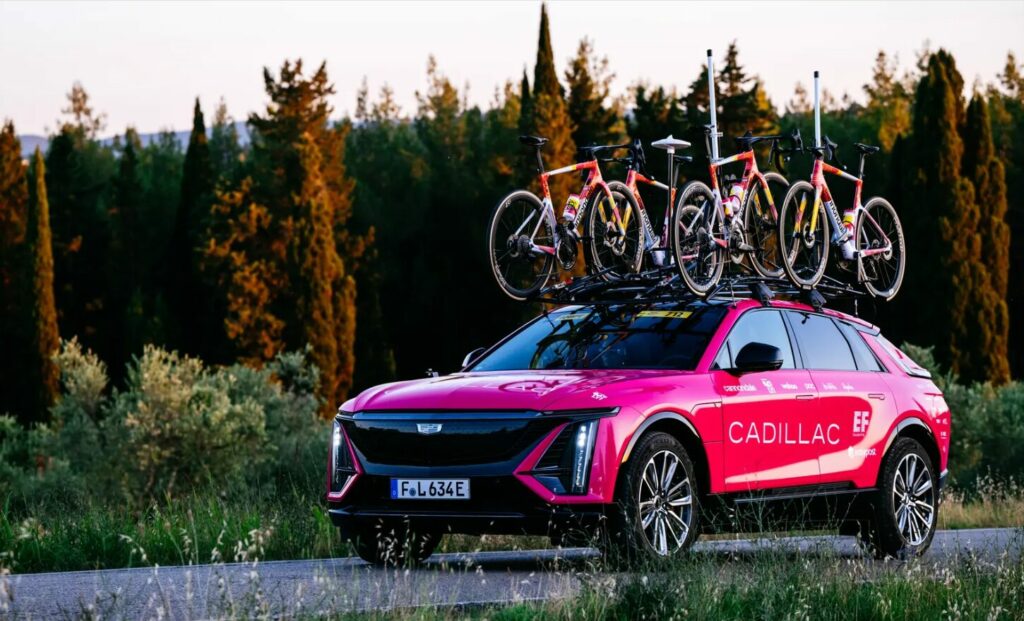
Adapted infrastructures
To support this transition to electric vehicles, recharging facilities will be set up along the route. Rexel, a partner of the Tour, is providing a map of the charging points close to the route, making it easier to manage the electric vehicle fleet.
A greener race
This move towards electric and rechargeable hybrid vehicles reflects a shared desire on the part of the organisers, partners and teams to make the Tour de France more environmentally friendly. By reducing greenhouse gas emissions and noise pollution, the Tour de France 2025 is part of an eco-responsible approach, while retaining its festive and popular character.
In this way, the Tour de France 2025 is not just a high-level sporting event; it is also becoming a model of energy transition, showing the way forward for other large-scale events.

